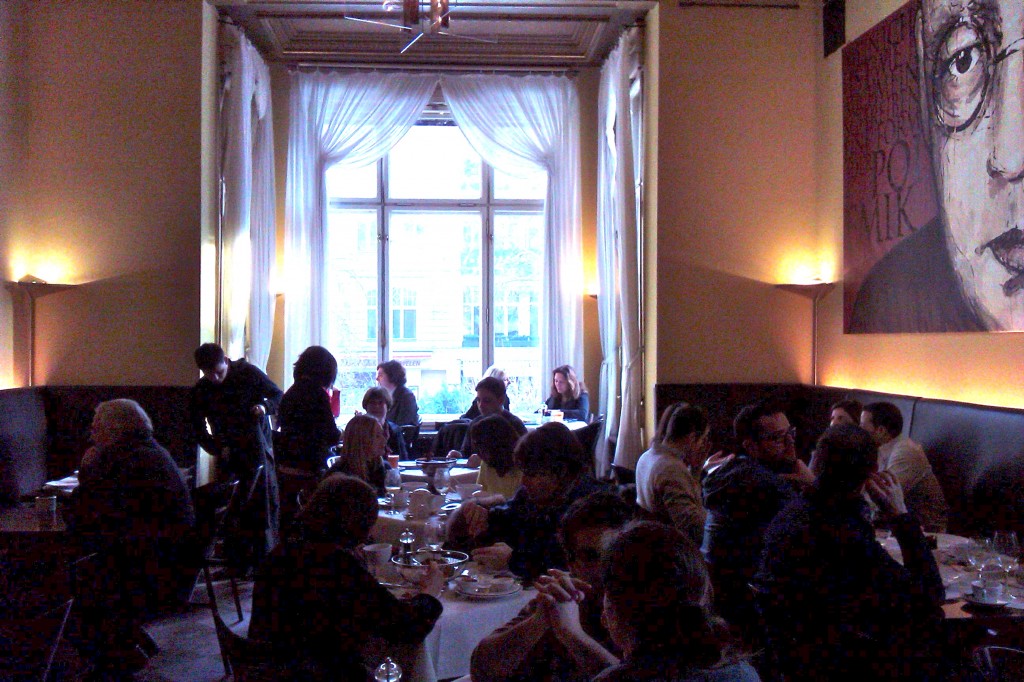Literaturhaus Café
It’s winter and there is finally snow on the ground. I go to the Literature House on Fasanenstr. 23 in Charlottenburg for the first time. I stand at the gate and look in. The villa looks grand, Gründerzeit, from 1890, set back from a garden. I try the front door, where the literary association of the Berlin region holds its many talks and readings, and find it closed. I walk around the side of the house, feeling like I am trespassing, leaving footprints in the frost. I see the stairs, leading up to the frames of the Wintergarten. There’s a curtain inside the door to keep out the cold. Still, there’s a chill about the plants reaching to the windows for light. In the café rooms, with their slightly harried service, large portraits stare down at me, faces of literati no doubt, much larger than we.
Waffles, coffee, cakes, I stuff myself anxiously. This place fills me with contradictory emotions.
I think about taking out my notes, to get some work done, to correct a chapter from a draft of my book, and feel preposterous. Oh yes, let’s be literary in the literary house. It’s too performative, as if writing itself is something you might do for an audience. The café brought writing and its solitary activity into the open. This mystique of Les Deux Magots, of Camus and Sartre and Hemingway, is something that’s never pulled at my fantasy. I always preferred Virginia Woolf and her room of one’s own.
I have a suspicion about how this marriage of coffee culture, flaneurs and writers came about in the first place. Because writers lived in garrets in Paris, because they had no way to keep their hands warm, they preferred to sit in public places, that were heated, watching the world go by. Meanwhile, the impatient waiter shakes his head at the man who ordered only one drink but stayed five hours. Isn’t it perverse that this necessity be turned into the theme of a grand coffee house?
Have another piece of cake. It’s good. And more coffee. And on reflection, I wonder whether I have got it all wrong.
Should I not embrace this fantasy, that a great villa could belong to all writers (and not just the few actually sponsored by the Literaturhaus Verein), that it could belong to those whose activity often seems the least compatible, and compensated, in the getting and spending of today’s capitalism?
From the Wintergarden I look outside at the frost, try to take the perspective of all the thin plants struggling in the drafty protection of its glass dome. If you kept the doors open, or turned the heat off, for only a night, they would all die. I think about the house’s guest program, lectures, readings, its history as a meeting place of East and West writers after its founding in 1986… and recognise for a moment that it’s beautiful to be somewhere where literature is exalted, appreciated, publicly sponsored.
Except I get my cheque and go home. My hands are still too cold and I don’t like all the windows.






2 thoughts on “Literaturhaus Café”